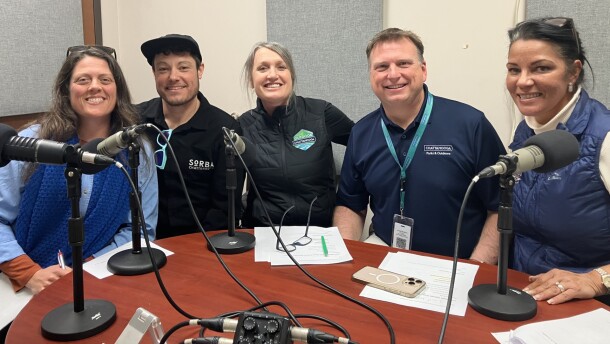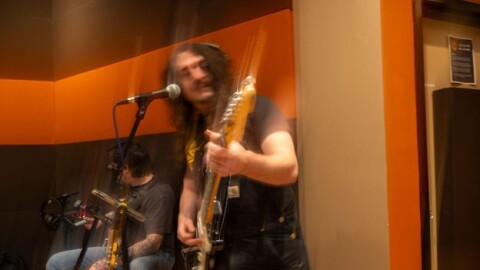On the latest episode of “The Parkside Podcast," we talk trails with Brenna Kelly, Sunshine Loveless and Gail Loveland Barille.
More From WUTC
-
Singer-songwriter Jeremiah Harmon serenades the studio about music history and his upcoming album on this episode of WUTC's "Live in the Library" with Clark Gibson.
-
How can one voice help lift a community? Our public media partner WTCI PBS has told the story of our own Richard Winham here at WUTC.
-
The planned giving by Rick and Lori Govan to UTC supports WUTC — an asset the Govans strongly believe in.
-
What improvements have drivers seen on Hamilton County's roads? What projects for county roads are next on the horizon? What about the impact of this winter’s weather on those roads?
-
The first Black Legacy of Arts and Culture Festival - or B.L.A.C. Fest - features Black artistry and live conversation, Friday through Sunday here in Chattanooga.
UTC on WUTC
-
Imagine a classical string quartet infused with jazz, folk, bluegrass, Latin, rock, funk and improvisational traditions. On Tuesday, The Turtle Island Quartet returns to UTC.
-
“Alice by Heart” - a musical set during the London Blitz of World War II - is the upcoming production by UTC Theatre Co. on our campus at UTC, opening on Tuesday.
-
Sally Faulkner, a local supporter of WUTC, brought her playlist to "The Haley Solomon Show" for this episode of "DJ for an Hour" - a program that supports your public radio station in Chattanooga and the Tennessee Valley.
-
Samuel Jones, a local supporter of WUTC, and his friend Brian Faul brought their playlists to "The Haley Solomon Show" for this episode of "DJ For An Hour": a program that supports your public radio station in Chattanooga and the Tennessee Valley.
-
(Aired Thu 2/12/26) Two years on for this Chattanooga band - and going strong! The Boneyard House Band jams with fun, unexpected covers on this episode of WUTC's "Live in the Library" with Clark Gibson
-
Futuristic Caveman Official brings his own flavor of cinematic synth wave to this week’s episode of WUTC's "Live in the Library" with Clark Gibson, recorded live downtown at The Chattanooga Public Library.
News From NPR
WUTC Presents Fred Hersch
Tues 4/21 at 7:30 PM
UTC Fine Arts Center
Hayes Concert Hall
Brought To You By Ken & Nancy Dryden
Tues 4/21 at 7:30 PM
UTC Fine Arts Center
Hayes Concert Hall
Brought To You By Ken & Nancy Dryden
More From NPR































